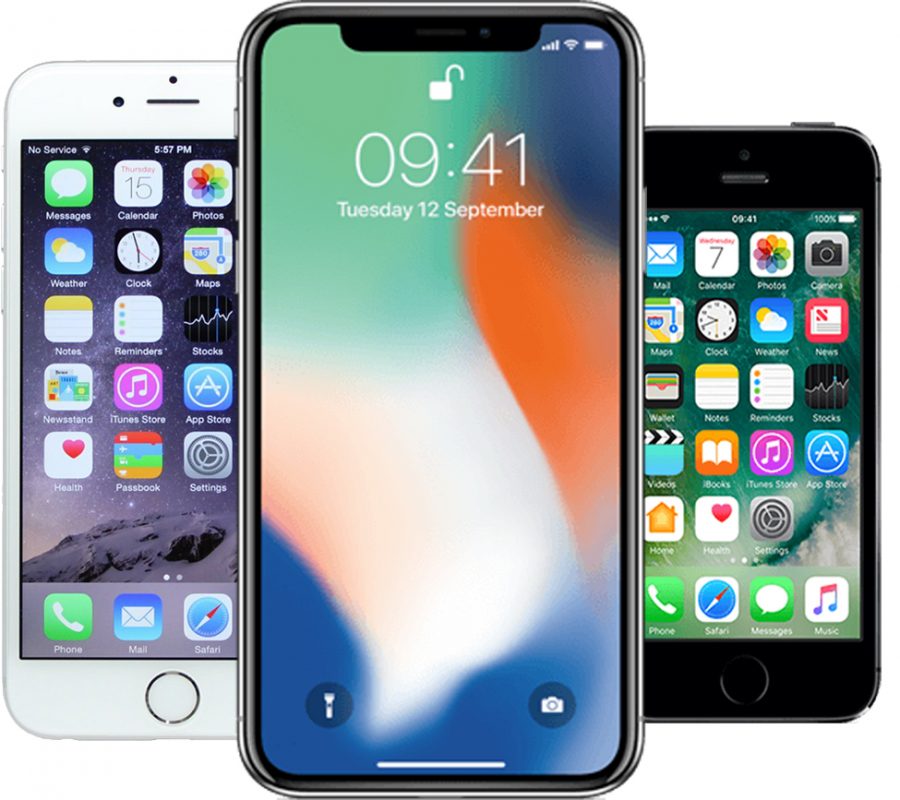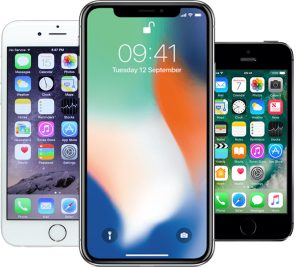Teachers should allow cell phones in class within reason
October 14, 2018
The use of smartphones in the classroom is currently among the most highly-debated issues plaguing public schools today.While some schools have banned their use entirely in order to decrease disruptive interruptions and distractions, others have supported the use of smartphones as a technology tool to enhance student learning and engagement.
On July 30, 2018, France passed a bill banning all forms of cell phone use in the classroom, leaving many American students to wonder if a widespread ban might ever take place in the United States. Currently, approximately 24% of U.S. schools have implemented some kind of ban on cell phones, and there are a myriad of reasons for doing so. First and foremost, cell phones have become a leading source of distraction for students tempted to check social media, play games, and text friends. Even more troubling, however, is their potential to increase cyberbullying as well exposure to sexual predators. Additionally, the EPA is now concerned that there could be detrimental health effects caused by overexposure to computer screens and wireless devices such as computer vision syndrome and certain cancers.
Despite the negative effects of cell phone use in the classroom, many insist that smartphones in the classroom offer far more advantages than disadvantages. There are numerous ways for cell phones to be used properly in the classroom and for the student’s benefit. For example, smartphones offer fast, efficient means of accessing information. Additionally, teachers can have students download educational learning apps to help with homework, develop better study habits, and gain better organizational skills. Lastly, cell phones in class can give parents peace of mind. For example, the parents would know that they would be able to contact their student if an emergency were to arise, and cell phones contain GPS devices that can be tracked if necessary.
Overall, teachers should allow the use of cellular devices in class, but within reason. For example, the student should not be allowed to watch anything unrelated to the class, text friends, play games unrelated to the subject, or use social media platforms. Furthermore, students should always be able to have their phones on their person in case of an emergency or accident. Students can also access and submit any form of digital work in an instant with educational apps and platforms, and they can even receive reminders so that they do not forget to complete homework and projects. The pros far outweigh the cons. Phones aren’t something to be blocked, they’re something to be incorporated meaningfully.










Cayleigh Gordon • Sep 22, 2020 at 8:47 am
Well I think the phone rule that we got now in classes are a good thing because I know for me if phones were allowed in class I would be on my phone all hour. Phones are a big distraction I know because I will be on my phone all day if you let me and that is not a good thing really there is more to life then being on your phone all day. I learned that there is so much stuff you can do and you can still have fun while not being on your phone. So when it comes to the phone rule in class I think it is a good thing the teachers don’t just let us be on are phone all hour cause if they did I feel like people wouldn’t be engaged and they won’t do nothing but be on there phone all hour.
trystin • Feb 21, 2020 at 4:46 pm
thank u
Ben Edds • Sep 24, 2019 at 4:38 pm
This wouldn’t work. One, what’s to say the students won’t pretend to download these educational apps and just play games all hour, check social media, etc. Second, parents can get in touch with their kid via calling the office, the office calling the class that child is in, and send them down to said office. Lastly, the school issues Chromebooks for a reason; they offer fast, efficient means of accessing information as well, making the use of phones entirely useless.
Tyler Freeman • Sep 24, 2019 at 11:51 am
Great article, good examples of pros and cons. I agree that phones should be incorporated in to the school system and not totally dismissed. I think it would be hard to get rid of phones in schools because people will still use them no matter what. Phones are apart of mostly everybody’s lives now and it’d be hard to take that away from people. Lastly, having phones available to students will help the learning.
Zakhona • Oct 9, 2022 at 5:36 pm
Good speaking love and that is true ?????
Jason Koch • Sep 24, 2019 at 9:25 am
I liked the contrasting opinions relating to both sides of the argument. There was also a good style with descriptive verbs and adjectives. It is a good topic, and it was discussed well. In future articles let up on the transitions a little, and keep it clear and concise. Overall a good article, captivating and understandable.
Shawna Sawall • Oct 17, 2018 at 1:23 pm
You did a good job talking about both pros and cons without being negative towards those with opposing opinions
Malin • Oct 17, 2018 at 12:57 pm
Great article, I totally agree. You used a very scholarly tone and facts to support your thesis. Great job!
Kaylynn Dodge • Oct 16, 2018 at 1:26 pm
I love the article. I 10/10 agree with it. Maybe a little more structured but I like how you addressed the pro’s and con’s of the topic and made a cooperative solution.
Astrid • Oct 15, 2018 at 1:09 pm
I definitely agree! Good job weighing the pros and cons and deciding on a reasonable solution.
Cameron Myers • Oct 15, 2018 at 9:58 am
Really like this article! The use of using global information on cell phone bans in France. Very good! There are some grammatical errors but other than that, great job!